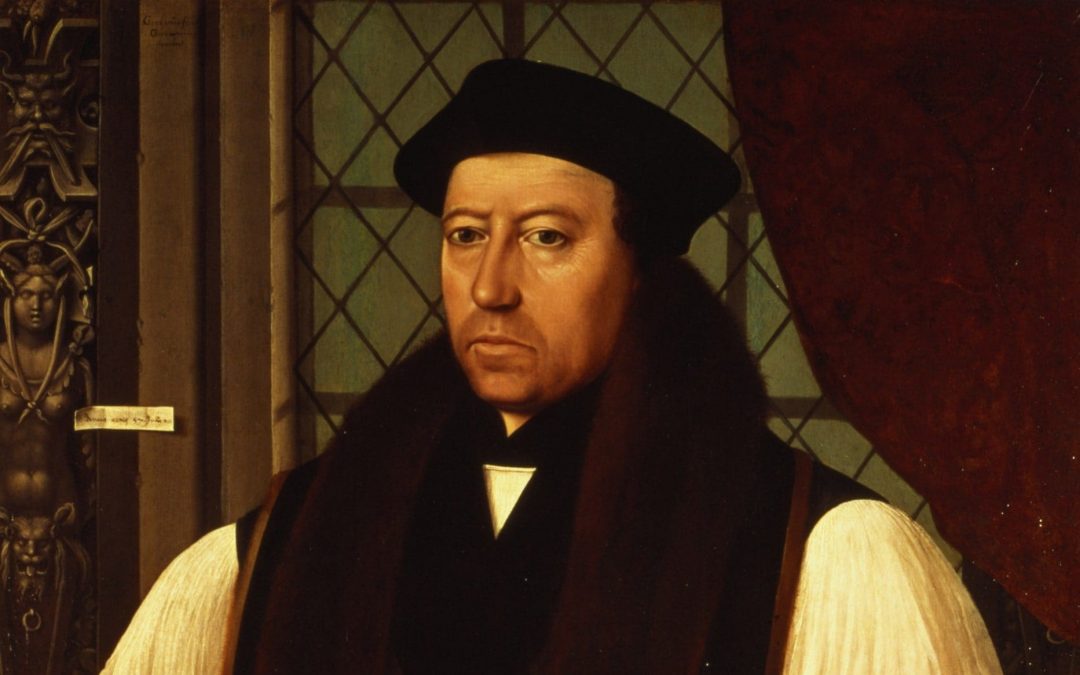On Thursday, March 21st, we celebrated the Feast Day of Archbishop Thomas Cranmer (1489-1556), reformer of the Anglican Church, writer of the Book of Common Prayer, and martyr for his beliefs. (It’s worth noting that the complete texts of the ACNA’s Book of Common Prayer 2019 are now available.)
Truth be told, Cranmer has always been a somewhat difficult figure to me. My research on the later development of the English Church showed me many great heroes in our tradition, yet Cranmer always gave me pause. No doubt he was a great man, but the imprint of his life was tainted by accusations of political manipulation in his dealings with Henry VIII and Edward VI and moral ambivalence toward persecuted Catholics and Protestants.
Perhaps worst of all, when Mary Tudor came to the throne and began persecuting his fellow evangelicals, Cranmer did not stand firm like many of his colleagues; instead, he denounced the movement he had led and only repented in his final moments. Early Anglican narratives too easily sponged away the difficulties in his character and often glossed over the moral failure of his recantation, focusing instead on his final act of defiance: letting the hand that signed his recantation burn first before facing the fire with a clean conscience.
Nestled somewhere between the hagiography of a guiltless Cranmer and his demonization lies the true man. We cannot expunge his sins, but neither can we demonize him. The more I have studied and contemplated him, the more I have come to appreciate this man, filled with contradiction and spiritual turmoil, who often failed, yet did many great and good things. His execution is powerfully moving, but so is his fear of his loved ones’ deaths that likely motivated his recantations. One fills me with awe, the other pity, and neither can or ought to be removed from our image of Cranmer.
There is something strangely fitting in the fact that one of the great Anglican saints is a figure of such contradiction. The church he fought to reform is and was like him, full of the tension between politics and theology, tradition and progress, Protestantism and Catholicism. While we may not solve our issues as violently as our ancestors, the current conflicts in the Anglican Communion can be filled with as much anger and bitterness as they were 500 years ago.
Still, I think there is much we can learn from Cranmer. He was not a beatific saint, whose piety provides a near perfect example. Instead, he wears his sin quite openly. He forces us to confront the log in our own eyes before we take up arms against others. He is a saint in the tradition of Peter, whose victory is elevated because of the depth of humiliation he suffered.
In this vein, it is timely that Cranmer’s feast come in the middle of Lent, the annual time of repentance that prepares us to take up our crosses with Christ during Holy Week. May we learn with Cranmer to let those parts of us that have betrayed Christ burn before we enter with him into the glory of Easter.
If you’re interested in learning more about Thomas Cranmer, here is a pdf listing some of Josh’s recommended reads.


Recent Comments